‘Putin’s companion’ steps into the spotlight
Alina Kabaeva and the athletic struggle for influence in Russia.
By Elizaveta Fokht.
The former Olympic gymnast Alina Kabaeva, sometimes referred to in the independent Russian media as President Putin’s ‘companion’, and the subject of sanctions by the West, has been one of the most private figures of the country’s often flamboyant elite.
But in recent months, Kabaeva has made a dramatic return to public life, promoting her ‘Sky Grace’ gymnastics academy – and falling out with Irina Viner, her former mentor, and the doyenne of Russian rhythmic gymnastics for more than two decades.
Why has Kabaeva chosen this moment to come back into the limelight? And what does her decision tell us about the shifting dynamics among those close to, and dependent on, Vladimir Putin?
Stepping out of the shadows
Despite the lack of competitors from ‘unfriendly’ nations, the BRICS Games in Kazan opened in June last year to immense fanfare. The event was pitched as an alternative to the Summer Olympics in Paris, and the spotlight was naturally shone on sports in which Russia tends to excel; not least, rhythmic gymnastics, which the country has traditionally dominated.
The tournament included not only gymnasts from Russia, Belarus, Kazakhstan, Thailand, Serbia, and elsewhere, but also competitors from the ‘Sky Grace’ club, who competed under its banner as a separate entity, distinct from the Russian team.
It was a unique development; the more so given that the club was only founded two years earlier. The explanation for the extraordinary favour shown to Sky Grace, however, is not hard to discover: the club’s founder and leader is Alina Kabaeva.
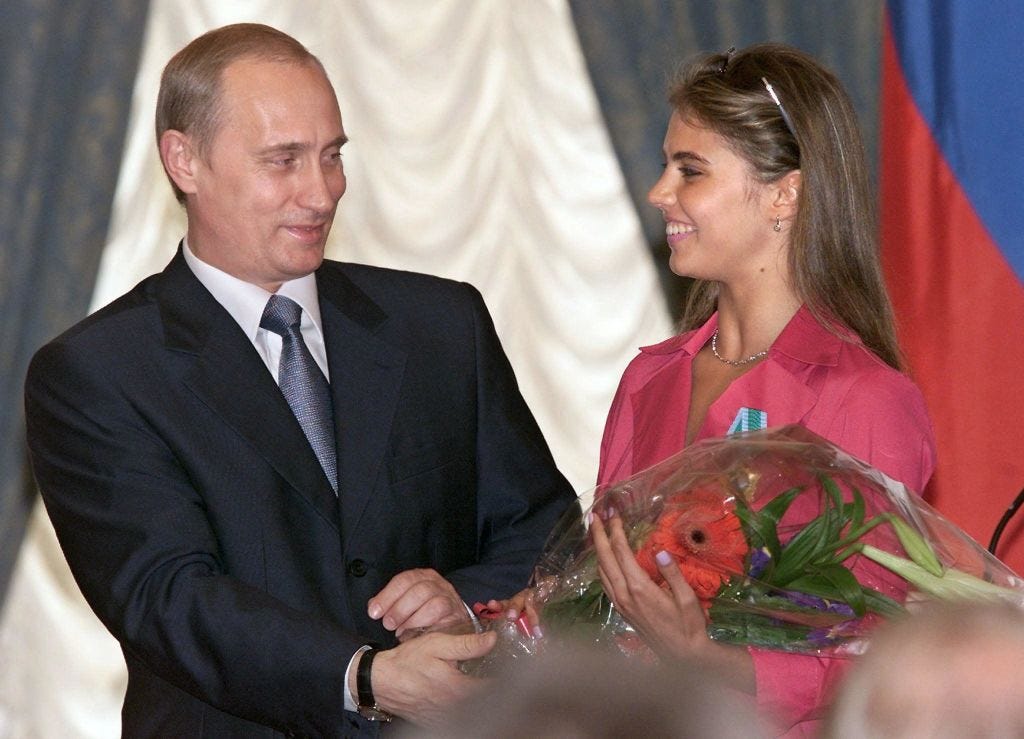
She is among Russia’s most renowned athletes, achieving Olympic success and multiple world titles in rhythmic gymnastics. But more recently her fame has centred less on her sporting achievements and rather more on her alleged relationship with Vladimir Putin – and suggestions that she is the mother of his younger children. One investigative work, published in the autumn, claimed the pair have two sons.
The ’close relationship’ was cited as justification for the sanctions imposed on Kabaeva by the US, UK and European Union in 2022. Putin himself has never acknowledged a connection to the gymnast, responding to rumours of an imminent wedding by saying in 2008 that he "has always thought badly of those who with flu-infected noses and erotic fantasies pry into the lives of others."
Putin’s personal life is known to be strictly taboo inside Russia. His two presumed daughters, Maria Vorontsova and Katerina Tikhonova, are respectively a top manager in a highly profitable medical concern and the head of a $1.7 billion development project at Moscow State University.
Anna Tsivilyeva, understood to be the daughter of the president’s cousin, Yevgeny Putin, has zoomed to the rank of Deputy Minister of Defence (despite having no obvious qualifications for the job – she is a psychiatrist by profession).
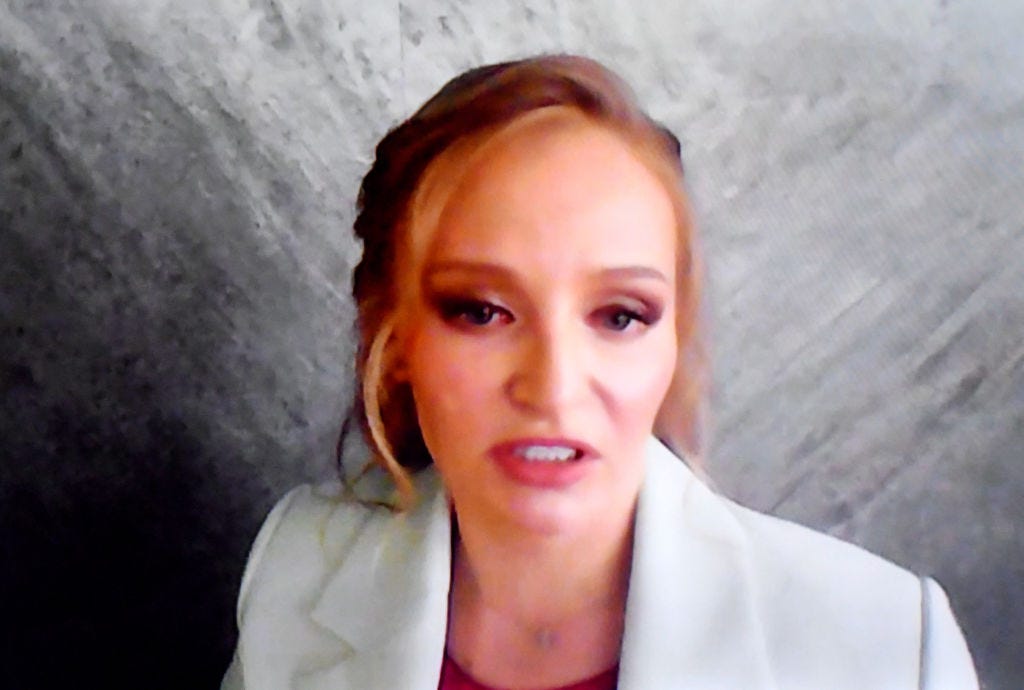
Neither Putin nor the women concerned have ever confirmed familial links. All three are subject to sanctions, and all three appear to benefit from preferential treatment, budgetary largesse and accelerated career paths that ordinary Russians do not enjoy. What the Kremlin dismisses as media prurience, the media describe as a matter of vital public interest.
It was no surprise, therefore, in 2015 when reports that Kabaeva had given birth to Putin’s child were flatly denied .
However it may be, after retiring from her sporting career in 2007, Alina Kabaeva’s rise into the upper tier of the Russian elite was rapid. She served for seven years as a member of Russia’s parliament, and then chaired the board of directors of the National Media Group holding that belongs to one of Putin’s closest allies, Yuri Kovalchuk.
Despite occupying prominent positions, she avoided appearances in public, remaining in the shadows and almost never engaging with the media. Glossy magazines described her as a ‘virtually unattainable’ subject for a story.
Things suddenly changed in the autumn of 2022, after the full-scale war in Ukraine was well underway. Kabaeva announced the formation of ‘Sky Grace’, an international association of rhythmic gymnastics clubs. Shortly afterwards, a Sky Grace academy opened in the Black Sea resort of Sochi at the Sirius educational centre, set up at Putin’s instigation. In March 2023, the brand new gymnastics school was reportedly gifted a building worth more than two billion rubles by the state natural gas concern Gazprom.
And then Kabaeva, by now herself sanctioned in the West, suddenly set foot again into the arena of public attention, floodlit by Russia’s media outlets, not least those owned by the Kovalchuk company she had previously chaired.
Competition – but on special terms
Until the academy came into being, Kabaeva had little to do with training the next generation of gymnasts. There was an annual ‘Alina’ festival in her name, but her role was more presiding influence than coach.
“Sky Grace is a rather different story,” says a journalist who has covered gymnastics events involving Kabaeva, and who asked to remain anonymous. “In the past year, it really seems that Kabaeva’s ambitions have moved on from organiser to coach, working directly with children on the gymnasium mats.”
Kabaeva’s newly-fledged club enjoys a status any other sports organisation in Russia would envy. It can pick and approve a calendar to suit itself, choose the rules under which it hosts tournaments – separately from those long established for rhythmic gymnastics at home and abroad – and hand out awards at its own discretion. In these respects, too, Sky Grace is unique among Russian sports clubs.
On top of all that, Kabaeva’s students travelled to take part in events held in Europe last year. Although competing with neutral status, these were the first such trips since Russia’s suspension and no gymnasts from other Russian clubs were offered the opportunity.
“Sky Grace operates as a separate sport that obeys its own rules. It conducts tournaments according to those rules, and honours are awarded based on this ‘sport’,” the journalist says.
“In other words, in addition to her gymnastics, Kabaeva has invented a parallel sport that exists with its own founding documents.”
Up to this point, Russian rhythmic gymnastics had observed a set of rules developed by a different authority: Irina Viner. The head of the federation for many years, Viner had also coached several woman, including Kabaeva herself, to Olympic glory, and dictated the standards for the sport.
The trainer and her pupil
“Personal rankings for my students? They don’t exist—I’ve never created them. As the saying has it, there are many who come second… But at the very top, of course, is Alina Kabaeva.”
Irina Viner had golden words for Kabaeva in the summer of 2023. By December last year, though, when asked about the methods used at Kabaeva’s academy, Viner’s tone had notably cooled:
“I’ve not been there, sadly, and haven’t seen it.”
Her status in Russian sports in the 18 months between these interviews slumped dramatically.
Irina Viner is one of the most famous trainers in the country. She has worked in the profession since 1992 and took over the running of Russia’s rhythmic gymnastics team in 2001. Made president of the Rhythmic Gymnastics Federation in 2008, Viner’s grip on the sport was absolute.
And like her protégée Kabaeva, she too ascended into the echelons of Russian elite society in the 2000s. Viner vouched for Putin’s electoral candidacy on several occasions, supported the decision to wage war on Ukraine, and was married for many years to the billionaire Alisher Usmanov, who had made his fortune in metals (and once enjoyed a majority shareholding in Arsenal football club). Viner and Usmanov divorced in 2022.
An outspoken voice in Russian sport, not least after the full-scale invasion of Ukraine, she called athletes who were willing to compete as neutrals without the adornment of the Russian flag and anthem a “team of homeless beggars.”
At home, her authority seemed unassailable. She even welcomed Kabaeva’s plans to start her own academy: “an excellent school with a great future,” she said as recently as last spring.
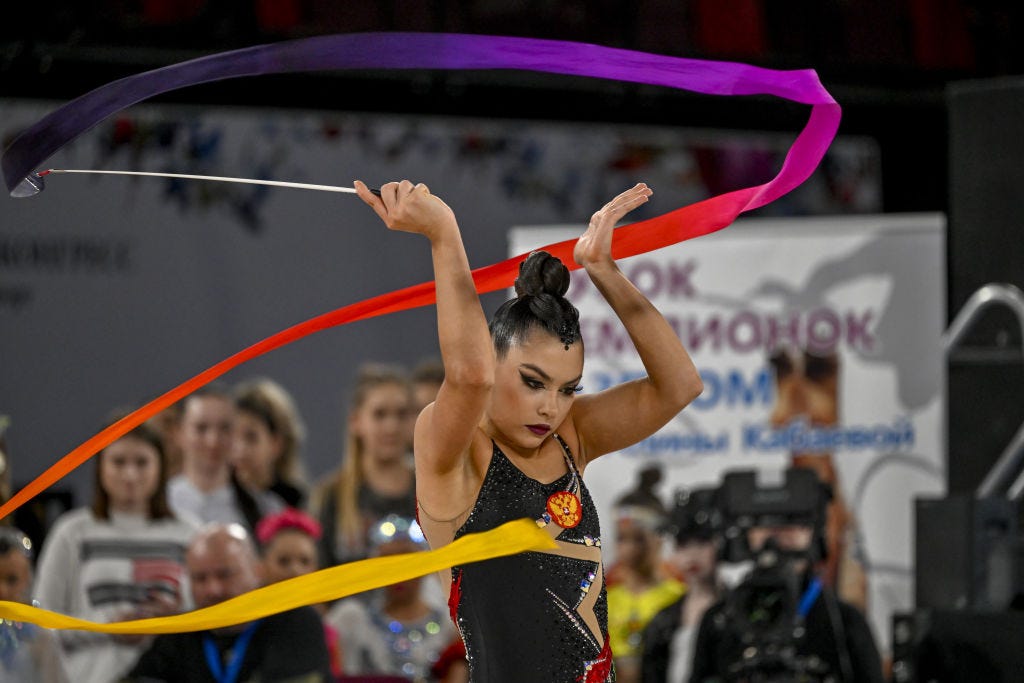
The simmering tensions that ended with Viner’s fall from grace appear to have overboiled at the BRICS Games, and the participation of Sky Grace as an independent entity - almost as a separate nation.
The main battle at the games for individual medals unfolded between two Russians rhythmic gymnasts: 19-year-old Lala Kramarenko and Maria Borisova, two years her junior. Both had been under Irina Viner's supervision since childhood.
But just before the games got underway, Borisova relocated to Sochi, and joined Sky Grace. Explaining her decision that summer, the teenager called Kabaeva’s way of coaching a “less pressurised approach” which “works much better for me; it’s easier to process."
Viner’s methods are famously tough – and for those familiar with the sport, Borisova’s words seemed like a jab at her former mentor. Social media piled in with clips retrieved from a documentary in which Viner was seen berating another gymnast as a “useless coward” in the run up to a competition.
Videos shared recently by Sky Grace seem intentionally to focus on its milder approach to training. In one, Kabaeva consoles a tearful gymnast from Donetsk, and telling her not to obsess about winning:
“Before I arrived in Moscow, I often used to come tenth, but it didn’t prevent me from becoming an Olympic champion,” Kabaeva reassures her.
In turn, when asked about Kabaeva’s methods late last year, Viner’s response was straightforward: children won’t understand if “you just stroke their heads.”
Lights, camera... action
Sky Grace is increasingly active on social media. The academy Telegram channel features dozens of videos of students training to Kabaeva’s instruction, filmed as if the renowned coach were unaware of the camera. But it’s highly unlikely she didn’t know she was being filmed, according to the sports journalist we spoke to: Kabaeva’s appearances on camera are orchestrated meticulously.
"No photo or video of Alina Kabaeva appears online without her knowledge and permission. It’s simply not possible for somebody to make a candid recording in secret and then post it,” the journalist said. “Alina approves everything, from the camera angle used, to the lighting, to whether adjustments are needed to her make-up.”
So why the sudden decision to abandon the background, and lift the media omertà? It is not possible to say with certainty, but Kabaeva’s re-embrace of public attention has coincided with the war in Ukraine and the imposition of sanctions.
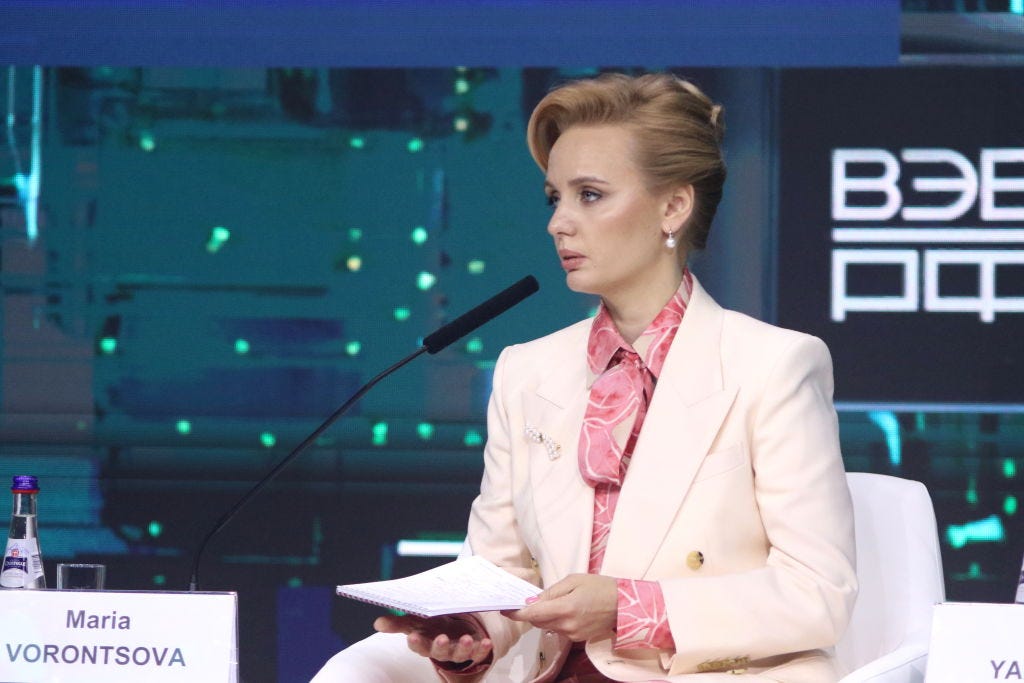
At the same time, both of Putin’s presumed daughters, Maria Vorontsova and Katerina Tikhonova, have begun to shed their aversion to the public eye, appearing at the St Petersburg Economic Investment Forum last year. The event has lost its attraction to foreign guests since the war was started, but remains a showcase for Vladimir Putin’s presiding authority and an attraction to would-be beneficiaries.
Given the work of independent media to reveal who these individuals are, and the fact that they have already been sanctioned, means there may no longer be a compelling reason to conceal their identities.
“F**k your Masha!”
When the BRICS Games concluded, it was Viner’s athlete, Lala Kramarenko, who took home the gold, while Kabaeva’s gymnasts won the group exercises. It appeared everyone was pleased with the outcomes. Viner even posted how happy she had been to catch up with Kabaeva:
“We hardly see each other now because Alina has her own serious, complex work, and I have mine. I wish we had more time together! The BRICS Games gave us the chance to reconnect!”
But the competition had been riven with tension. A complaint was made to the Ministry of Sport about the way Viner had behaved. It was initially reported by an obscure Telegram channel, but quickly picked up by Sport-Express, a major publication, and one owned by the media holding whose board Kabaeva had chaired.
The complaint revolved around allegations that Viner had accused event judges of being biased in favour of Kabaeva’s team. Viner was said to have been displeased with a score awarded to a gymnast of hers, and approached the judges’ table to make her views known to one of the officials.
"Young lady, just because Sky Grace invited you here doesn’t mean you have to do their work for them," she was reported to have said.
A day after the incident, the judge in question reviewed the scores awarded to both Sky Grace and the Russian national team. She found that the latter’s total had been notably inflated.
One gymnastics fan at the BRICS Games posted an account of how Viner had allegedly come up to confront Kabaeva in the tribune where she was following the competition. Viner claimed the points awarded to Maria Borisova, the youngster who had just quit her stable to join Sky Grace, had been inflated. When Kabaeva began to justify the scoring, Viner refused to listen: “F**k your Masha!,” she is said to have exclaimed, using the Russian diminutive form of the name Maria, before turning on her heel.
Later, Viner called the BRICS Games the most important sports event of 2024, and declared her student, Lala Kramarenko, athlete of the year.
The BBC has sought an interview with Viner, and contacted representatives of her sports centre. They promised to convey the request, but at the time of publication there had been no response.
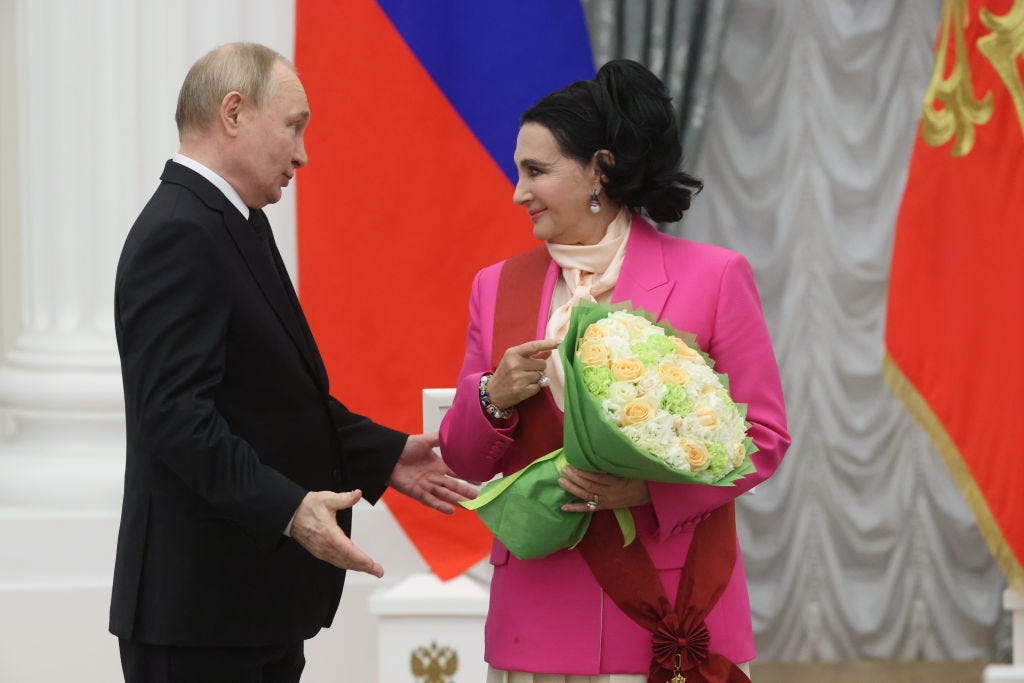
“Defeat on all fronts”
Following the controversy at the BRICS Games, Viner’s stellar career rapidly came off the rails. The sports minister wrote to her in July 2024, suggesting she take action against the judges who had inflated scores in favour of her gymnasts. The letter was leaked by the same little-known Telegram channel, ‘Kremlin Mamkoved’, that had first published details of the scoring scandal in Kazan.
Viner made no comment. But shortly after receiving the letter, she raised the question of who her successor might be as head of the Russian Rhythmic Gymnastics Federation. Her suggestion was a surprise: retired gymnast Olga Kapronova, rather than the candidate she had said her “heart suggested” earlier in the year - Alina Kabaeva.
In the autumn, the sports ministry announced that the Rhythmic Gymnastics Federation, which Viner had led for 15 years, was to be dissolved. A new catch-all federation for gymnastics was formed, and the chair handed to the head of Russia’s railway network. Viner didn’t even get a seat on the board. Rhythmic gymnastics in the new body is represented by Kapronova.
Viner claimed she had gone willingly: "The position in the federation was a heavy burden for me, preventing me from focusing on what my divine gift calls me to do—being a hands-on coach and educator. I’ve wanted to relinquish these responsibilities for a long time, but no one was willing to take them on. At one time, I repeatedly offered Alina Kabaeva my position, but she declined," she said.
The demise of her fortunes continued. In mid-October, a decree from Putin removed her from the Council for the Development of Physical Culture and Sports. Among those who were added to the body, however, was Kabaeva's ally, Marina Shpekt - the executive director of Sky Grace.
The council is composed mostly of regional officials, the heads of sports federations, and the leaders of major sports leagues. The inclusion of the director of a recently established rhythmic gymnastics academy seems unusual.
Viner remains the head coach of the national team; it is the only formal position she has retained. Yet the sports journalist we spoke to has no hesitation in declaring it a “defeat on all fronts.”
"What does it mean for someone of her status to be just a coach? Especially in rhythmic gymnastics, it's a pretty average role. Each girl has her own personal trainer, and the head coach is basically just a kind of manager; someone who says 'Right, let’s all meet for training tomorrow at 7 AM.'”
“There are no enemies – merely rivals”
The downfall of Viner fits a wider trend in which ‘hawks’ who criticised athletes for competing without the flag and anthem have found themselves jobless. Among them, Stanislav Pozdnyakov, the head of the Russian Olympic Committee. Sportsmen and women who have competed internationally under neutral status, meanwhile, now enjoy the personal support of Putin.
The war in Ukraine inevitably altered the dynamics of power seeking in Russia’s elite. It has also lifted the veil on nepotism and the erosion of checks and balances: secrecy is no longer relevant, possible or perhaps desired. Kabaeva, along with other assumed relatives of Putin, likely have their own personal ambitions. Their proximity to the president of Russia means that they will inevitably attract attention from others with such ambitions.
At the close of 2024, Irina Viner was asked how her year had been. "On one hand, not everything always goes smoothly,” she said. “But on the other, that's life. One needs to know the rough to be aware of the smooth. It’s all fine."
Kabaeva is concentrating on the development of her academy. Sky Grace is now being promoted as an international association. A major tournament was held in Qatar in late November, with Alina Kabaeva herself in the role of host. It was widely covered in the Russian media. The main sports channel sent their top commentator.
Kabaeva, who had been absent from television for years, took the opportunity to grant him a wide-ranging interview. At one point, the conversation turned to the rivalry between Lala Kramarenko, Viner’s protégée, and the women of Kabaeva’s Sky Grace.
“There are no enemies in sport, merely rivals. It’s right for everyone to train, to practise,” Kabaeva said. “The main task is to overcome yourself, not your opponent. If you can overcome yourself, if you cope with your own difficulties, you are bound to be successful.”
Read this story in Russian here.
English version edited by Chris Booth.
LONG READ: How Russian diplomacy lost its influence on Putin and failed to stop the war
Over the past decade the Russian Foreign Ministry has been increasingly sidelined, powerless to influence policy, and reduced to echoing the aggressive rhetoric coming from the Kremlin.




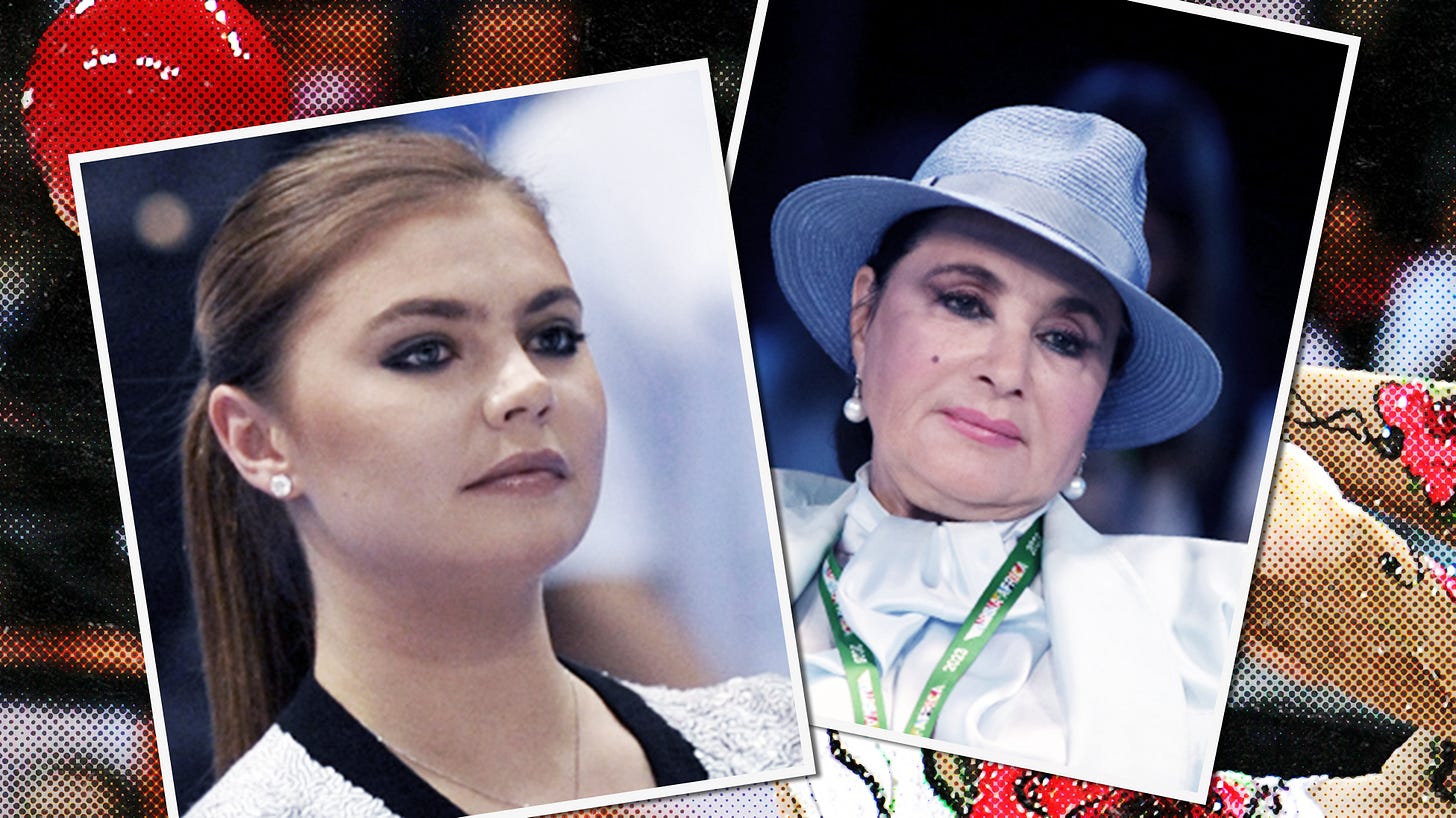
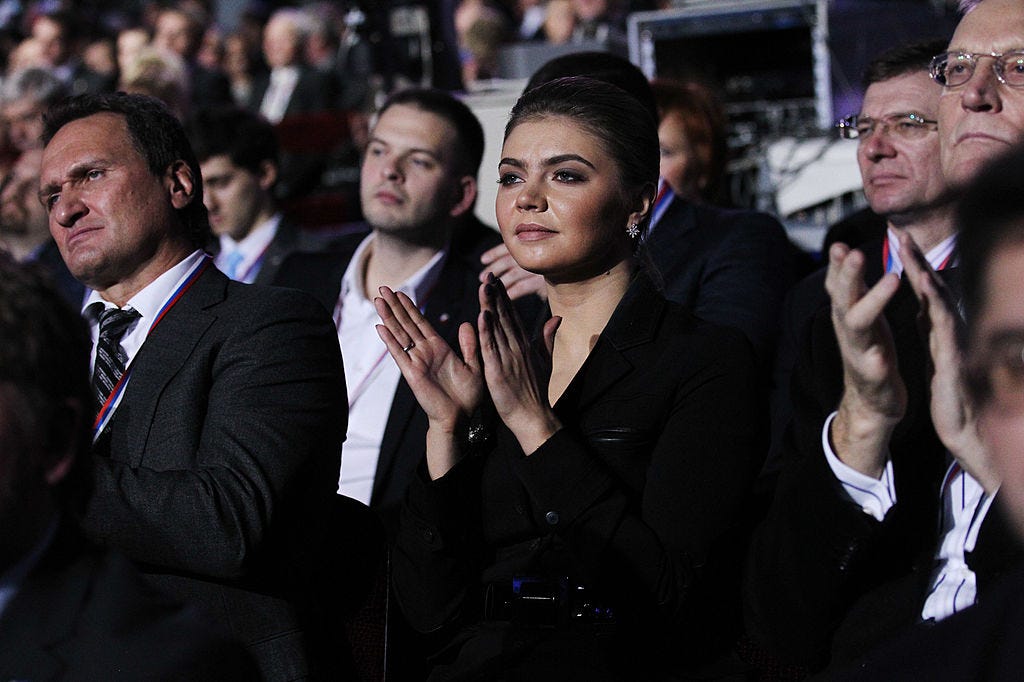
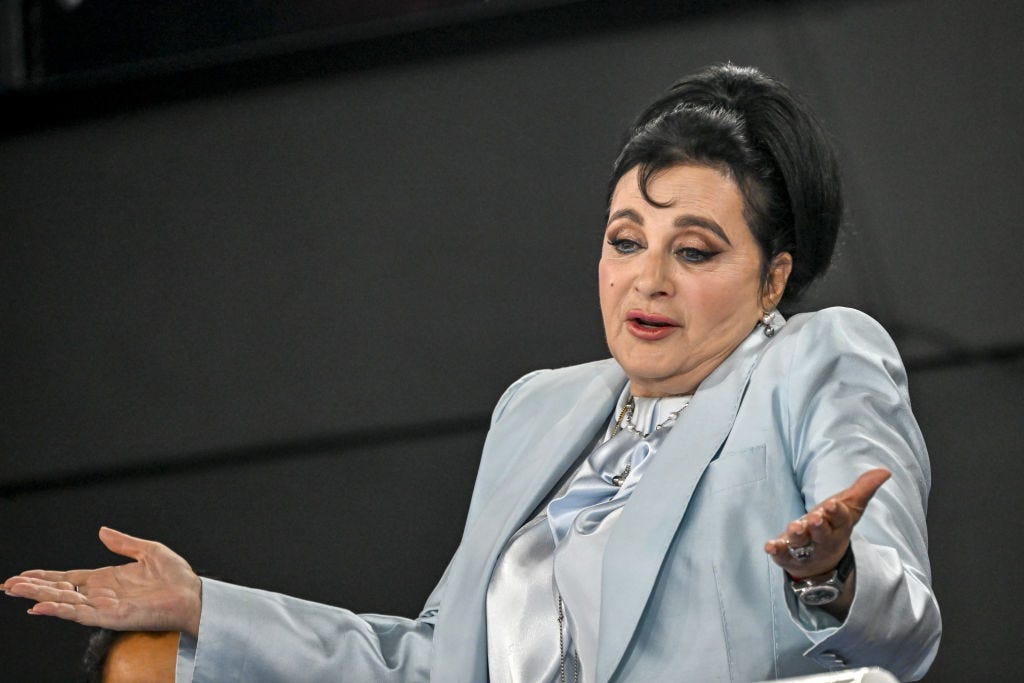

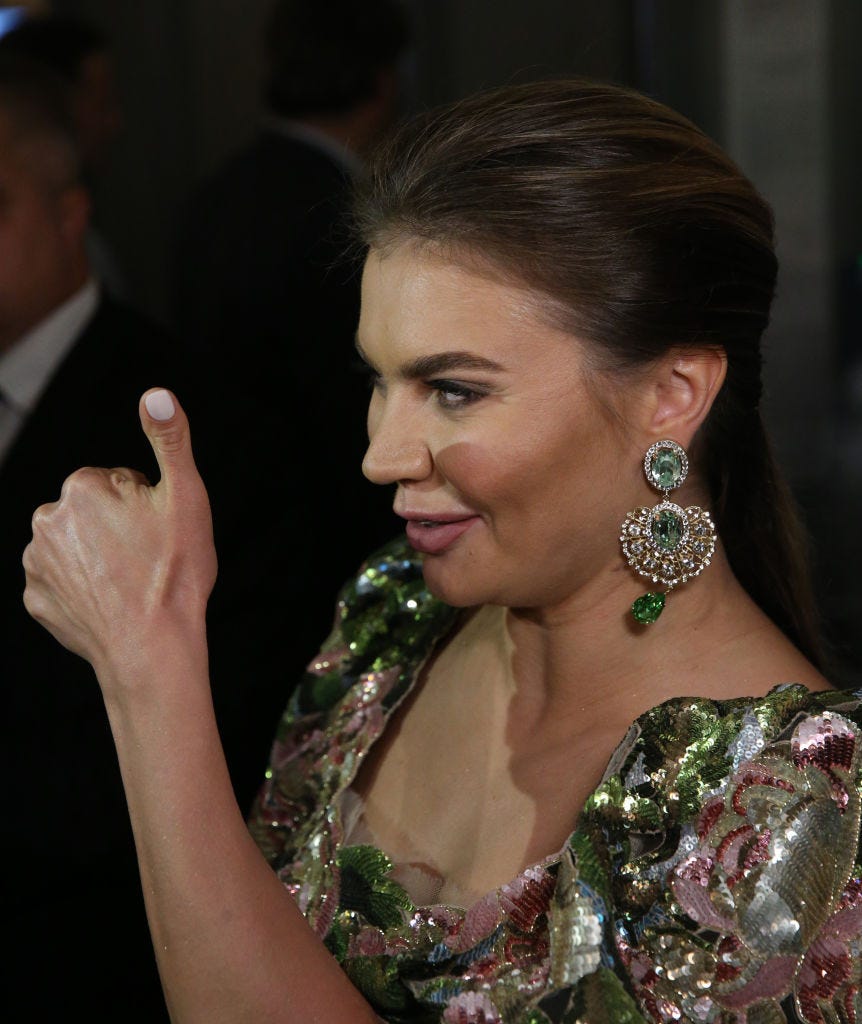

Interestingly... the end of the nation... due to oligarchal use of nationalism
Look out USA
It’s him in drag…